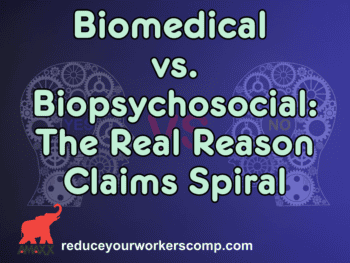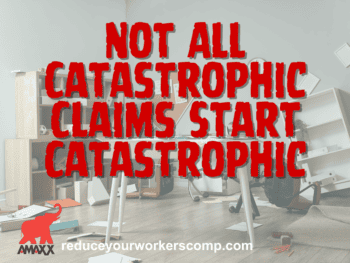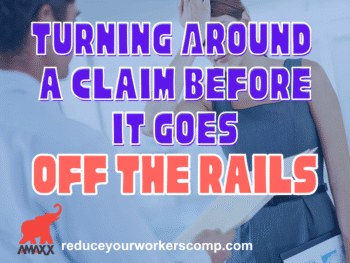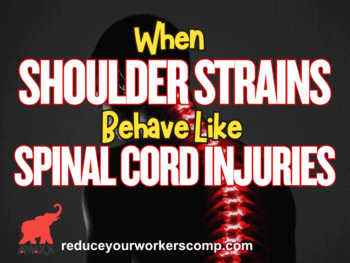Most workers’ compensation claims are clear cut, and there is no question by the employer that the claim is ‘covered’ for workers’ compensation. However, when an unusual situation occurs, the employer may not know if the work comp claim is ‘covered.’ By ‘covered’ the employer is actually asking “is the claim a compensable workers’ compensation claim?”
The compensability of workers’ compensation claims is determined by three criteria. The criteria that must be met for a claim to be ‘covered’ are:
- There must be an injury or an illness
- The injury or illness must arise in the course of employment
- The injury or illness must be caused by the employment
Click Link to Access Free PDF Download
“How Do I Get My Adjusters To Follow My Account Handling Instructions?”
There must be an injury or an illness:
This is the most basic requirement for a workers’ compensation claim. Most employees understand that an accident that they are involved in which damages the employer’s property but does not cause them any bodily harm, is not a workers’ compensation claim. “Near misses” where the employee almost got injured by a falling object, failed machinery or other sudden events do not create a workers’ compensation claim, regardless of how scared the employee may have been. (However, many states allow the employee to bring a stress claim if there is also a physical injury to the employee).
The injury or illness must arise in the course of employment:
An injury to the employee or an illness of the employee must occur during the employment. If an employee injures his back while at home (or anywhere other than the employer’s worksite for that matter), it is not a workers’ compensation claim. [The most frequent fraudulent claim is the injury that occurred while the employee was not working for the employer]. To determine if the injury is compensable, the employer should verify, preferably through independent witnesses, that the injury occurred while the employee was at work.
The injury or illness must be caused by the employment
‘Caused by the employment’ is often the most difficult aspect for both employees and employers to understand about workers’ compensation. Just because an injury or illness occurs on the worksite does not by itself create a workers’ compensation claim. The injury or illness must be caused by the employment. For example, the employee who is on her lunch break and burns her lips, tongue and mouth with coffee that was too hot, does not have a workers’ compensation claim as the cause of her injury is drinking a very hot beverage. The employment did not cause the injury. Another type of occurrence that often becomes contentious is the heart attack that occurs while the employee is working. If there are no work-related factors that caused the heart attack, the occurrence in the work place does not make it a compensable claim.
If the employer is unsure if the alleged claim is ‘covered’ by workers’ compensation, the employer should contact the adjuster and be prepared to discuss all the details surrounding the event that is being claimed as a work comp claim. The adjuster will be able to assist the employer in determining whether or not they have a compensable workers’ compensation claim.

Author Michael Stack, CEO Amaxx LLC. He is an expert in workers’ compensation cost containment systems and helps employers reduce their workers’ comp costs by 20% to 50%. He works as a consultant to large and mid-market clients, is a co-author of Your Ultimate Guide To Mastering Workers Comp Costs, a comprehensive step-by-step manual of cost containment strategies based on hands-on field experience, and is founder & lead trainer of Amaxx Workers’ Comp Training Center .
Contact: mstack@reduceyourworkerscomp.com.
Workers’ Comp Roundup Blog: https://blog.reduceyourworkerscomp.com/
©2019 Amaxx LLC. All rights reserved under International Copyright Law.
Do not use this information without independent verification. All state laws vary. You should consult with your insurance broker, attorney, or qualified professional.





























